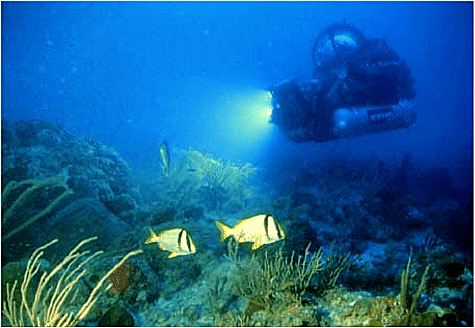INTRODUCTION
In December 2000, the United States Congress requested that the U.S. National Academies assess the feasibility and value of implementing a major, coordinated, international program of ocean exploration and discovery. An expert committee was formed and charged to address a specific Statement of Task (Box 1). The Committee on Exploration of the Seas includes members of the academic, legal, commercial, and non-profit sectors, with expertise in earth and oceanographic sciences, marine engineering, underwater archaeology, and national and international law and policy. The Committee held a series of working meetings and a large international workshop for the purpose of information gathering and deliberation and is currently drafting a final report. Recognizing the widespread interest in ocean issues, intensified recently by the deliberations of the U.S. Commission on Ocean Policy, the Committee decided to issue this interim report presenting the Committee’s broad findings and recommendations. The final report, to be published in Spring 2003, will include much more detailed analyses of the justification for an ocean exploration program and detailed recommendations for implementing such a program at the national and international levels.
|
Box 1 Committee on Exploration of the Seas Statement of Task This study will assess the feasibility and potential value of implementing a major, coordinated, international program of ocean exploration and discovery. The study Committee will survey national and international ocean programs and strategies for cooperation between governments, institutions, and ocean scientists and explorers, identifying strengths, weaknesses, and gaps in these activities. Based primarily on existing documents, the Committee will summarize priority areas for ocean research and exploration and examine existing plans for advancing ocean exploration and knowledge. These findings will then be used to help characterize the technology, human resources, organizational structures, and funding that would be needed to address the identified priorities in the United States and internationally. Finally, the Committee will recommend strategies to facilitate such a program, including information regarding the countries and organizations likely to participate; the institutional arrangements needed (including the possibility of new treaties or laws); the technology and infrastructure needed (including manned and autonomous underwater vehicles [AUVs], ships, observing systems, and data management systems); and an estimate of the potential costs. |
COMPARISON OF OCEAN EXPLORATION AND OCEAN RESEARCH
The ocean remains Earth’s least explored frontier. A well-planned, international program of ocean exploration, taking advantage of new technologies such as AUVs will allow the discovery of the ocean’s living and non-living resources (Figure 1). International agreements (e.g., the United Nations Convention on Law of the Sea, the Convention on Biological Diversity), and both new and existing partnerships (e.g., the Integrated Ocean Drilling Program), are key elements to establishing and supporting such an ambitious program of discovery. In the
context of this report, ocean exploration is seen as a complement to ocean research. It is distinguished from the traditional view of research in that it may not necessarily test a specific hypothesis, but is driven by a similar search for new knowledge. At a time when the ocean is widely recognized as influencing global climate and containing unknown amounts of biological, chemical, and mineral resources and human artifacts, there is a growing recognition that we have much more to learn about the secrets our ocean holds.

Figure 1. This submersible allows for exploration of natural living and non-living ocean inhabitants (used with permission from Kip Evans, National Geographic Society).
Ocean exploration began in earnest in the 1800s, and was followed by ocean research programs seeking to elaborate on those early discoveries. Our knowledge of the oceans remains limited, and a large-scale exploration program is necessary to continue to broaden ocean research. One short-term commitment, the International Decade of Ocean Exploration (IDOE) in the 1970s, resulted in a re-invigorated oceanographic community. Programs that were included in IDOE greatly improved the systematic quantification of observations. Programs such as Geochemical Ocean Sections, the Joint Global Ocean Flux Study, and World Ocean Circulation Experiment grew from the IDOE initiative. As a result, our understanding of the global climate system, geochemical cycling, and ocean circulation took enormous leaps forward (National Research Council, 2000).
An examination of the scientific method can serve to compare ocean exploration and ocean research. The scientific method is the process by which scientists gather data and develop hypotheses to create an accurate representation of how the world works. It attempts to minimize


